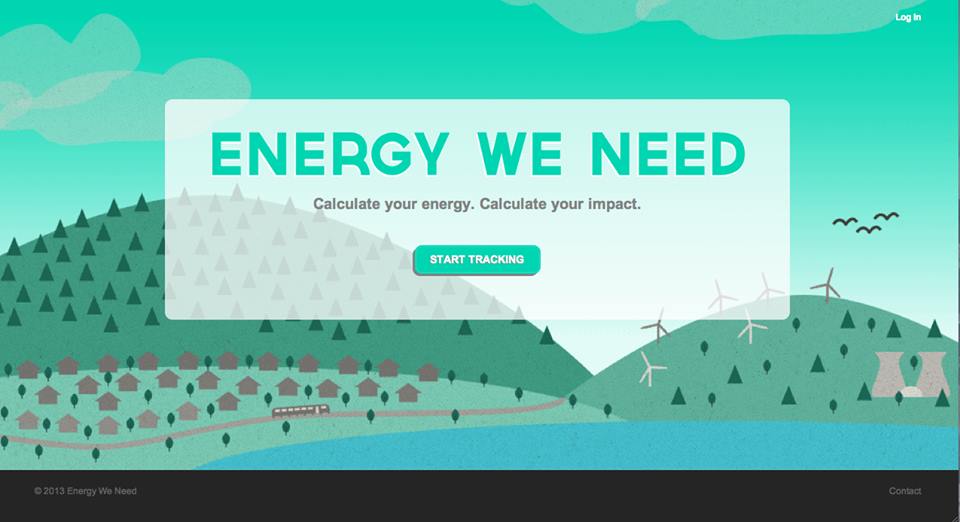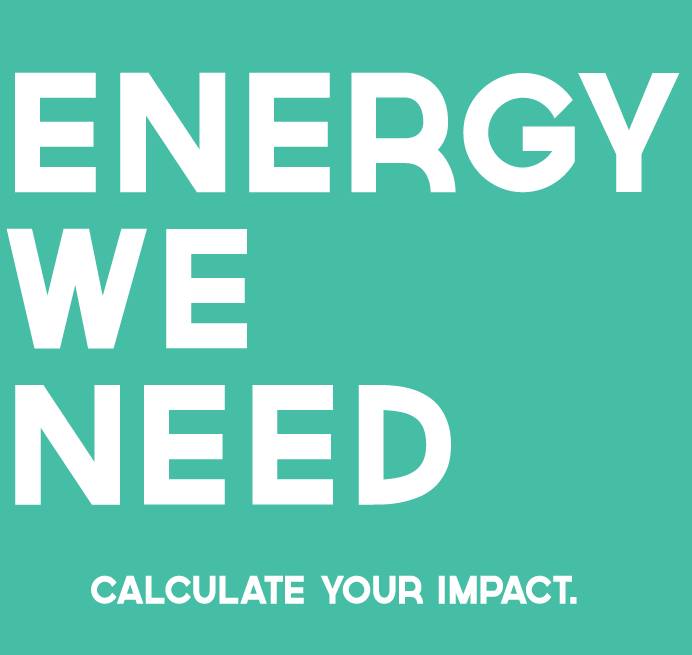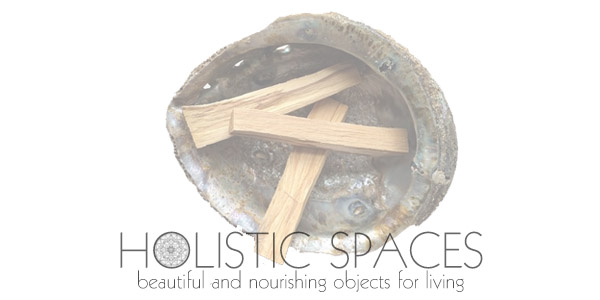Alexander Frantzen was an intern of mine when I managed the EcoBizNYC program at the Lower East Side Ecology Center. Of course I was so impressed when he reached out to me recently to share with me his new project, Energy We Need. Alexander has always been deeply dedicated to sustainability, and I'm proud to share his mission with my readers!
AC: Please, tell us about Energy We Need. What is your mission?
AF: In short the mission: Provide a free open-platform that: Encourages, educates and empowers—Individuals, groups and cities—to consume less and conserve more. The site makes all the math (and assumptions) transparent (you can download a PDF with all the formulas and explanations) in order to show people that it is possible to quantify out impacts, even though the effects that those impacts have exist in a (narrowing) range from bad to worse.
How did you come up with the idea for Energy We Need?
The site came up because I wanted to be able to calculate my energy impact without having to rely on other people’s assumptions or knowledge. So I read a textbook and learned how, and in the process of calculating my energy use (looking up appliance power use, kW, etc.) I realized I was doing work that a lot of other people would have to repeat (or likely wouldn't do themselves).
How have you seen this impact your life personally, as well as the people who use the app?
This impacted my life in the sense that when people make statements about their lifestyle impacts--most often we can't be accurate and thus the conversation ends in speculation. But with this website I know that my flight to London costs as much as driving a car 10 km every day of the year, or is equivalent to 200 laundry loads, etc. So I don't get stuck on (self-imposed) ignorance traps.
Put another way, it enables me to shed much needed light on our lifestyles’ impacts when having conversations with people, and almost all people have been excited about receiving this knowledge. In my eyes, we need to learn to empower ourselves to become informed (and to cut through inertia). People that try the app say it's cool when you get into it.
Why do you do this work? What attracted you to promote sustainability?
I do this because humans are causing irreparable damage to the earth and our own health, which could take millions of years to restore. Among them, coral reefs will be extinct by 2050, 50% of species on the Earth will be extinct by 2100, and we will experience severe climate disruption.
Promoting knowledge and action to reduce our impacts, I find, is a moral and/ethical decision. To not change our lifestyles, knowing the high probability of disastrous impacts with business as usual, is ethically daunting. It originates from my love of nature though, and my high school teacher who played Princess Mononoke in English class, which brought the environment to my attention.
What are 3 simple tips that my readers can do (and calculate on Energy We Need) right now to make their lives more sustainable and create a Holistic Space?
- Eat vegetarian 6/7 days of the week
- Use less heating/cooling by insulating, caulking, air sealing, putting on sweaters, etc.
- Not flying, driving, or buying less "stuff" (gadgets, ornaments, decorators, appliances, etc.).
Energy We Need is a platform that empowers people and inspires hope. This site is all embracing and inviting to everyone that wants to learn: (a) about their energy use, (b) how they best can save energy and money, (c) how this will reduce emission, and (d) how meaningful their actions and decisions are to everyone.
One goal is to connect the scientific community with the greater community of people, people that are less informed, but want to learn from scientists. With or without this connection, the site will reward people by showing them how many people’s lives they will affect for the better—as a result of the changes they choose to make in their lifestyles and habits.







